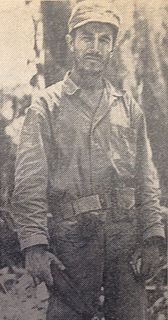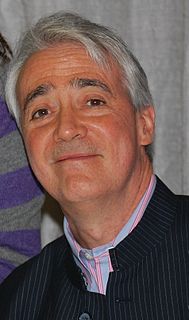A Quote by Noam Chomsky
We could not bring democracy to South Vietnam at a cost that we were willing to accept. So it was a disaster. That' is the left extreme.
Related Quotes
Most of us who were opposed to the war, especially in the early '60's - the war we were opposed to was the war on South Vietnam which destroyed South Vietnam's rural society. The South was devastated. But now anyone who opposed this atrocity is regarded as having defended North Vietnam. And that's part of the effort to present the war as if it were a war between South Vietnam and North Vietnam with the United States helping the South. Of course it's fabrication. But it's "official truth" now.
So if you look at the writings of intellectuals, there are two kinds. One said, l"Look, if we fought harder we could have won.But the others, who were way at the left, people like Anthony Lewis of the New York Times, way out in left stream, his view in 1975 was the Vietnam war began with blundering efforts to do good. But by 1969, it was clear that it was a disaster, that was too costly to us.
Every book that comes out, every article that comes out, talks about how - while it may have been a "mistake" or an "unwise effort" - the United States was defending South Vietnam from North Vietnamese aggression. And they portray those who opposed the war as apologists for North Vietnam. That's standard to say. The purpose is obvious: to obscure the fact that the United States did attack South Vietnam and the major war was fought against South Vietnam.
Why was the United States so afraid of an independent South Vietnam? Well, I think the reason again is pretty clear from the internal government documents. Precisely what they were afraid of was that the "takeover" of South Vietnam by nationalist forces would not be brutal. They feared it would be conciliatory and that there would be successful social and economic development - and that the whole region might work.
The leading, the most respected Vietnam historian, military historian Bernard Fall -he was a hawk incidentally, but he cared for the Vietnamese - he said it wasn't clear to him whether Vietnam could survive as a historical and cultural entity under the most massive attack that any region that size had ever suffered. He was talking about South Vietnam, incidentally.
There's just no question that the United States was trying desperately to prevent the independence of South Vietnam and to prevent a political settlement inside South Vietnam. And in fact it went to war precisely to prevent that. It finally bombed the North in 1965 with the purpose of trying to get the North to use its influence to call off the insurgency in the South.
The U.S. directed the war against South Vietnam. There was a political settlement in 1954. But in the late '50's the United States organized an internal repression in South Vietnam, not using its troops, but using the local apparatus it was constructing. This was a very significant and very effective campaign of violence and terrorism against the Vietminh - which was the communist-led nationalist force that fought the French. And the Vietminh at that time was adhering to the Geneva Accords, hoping that the political settlement would work out in South Vietnam.




























